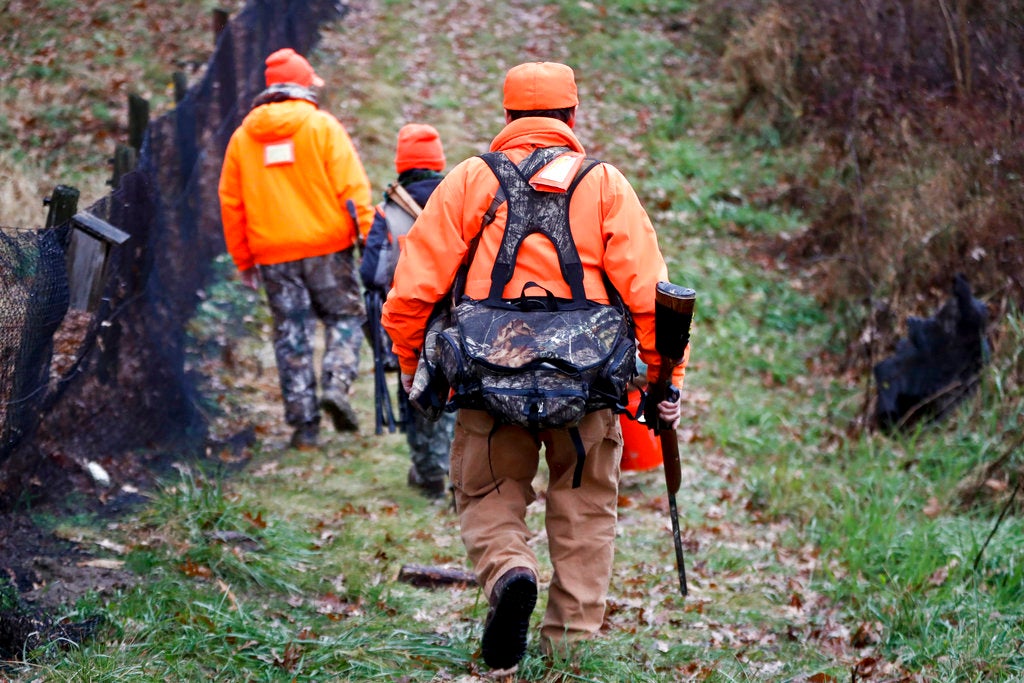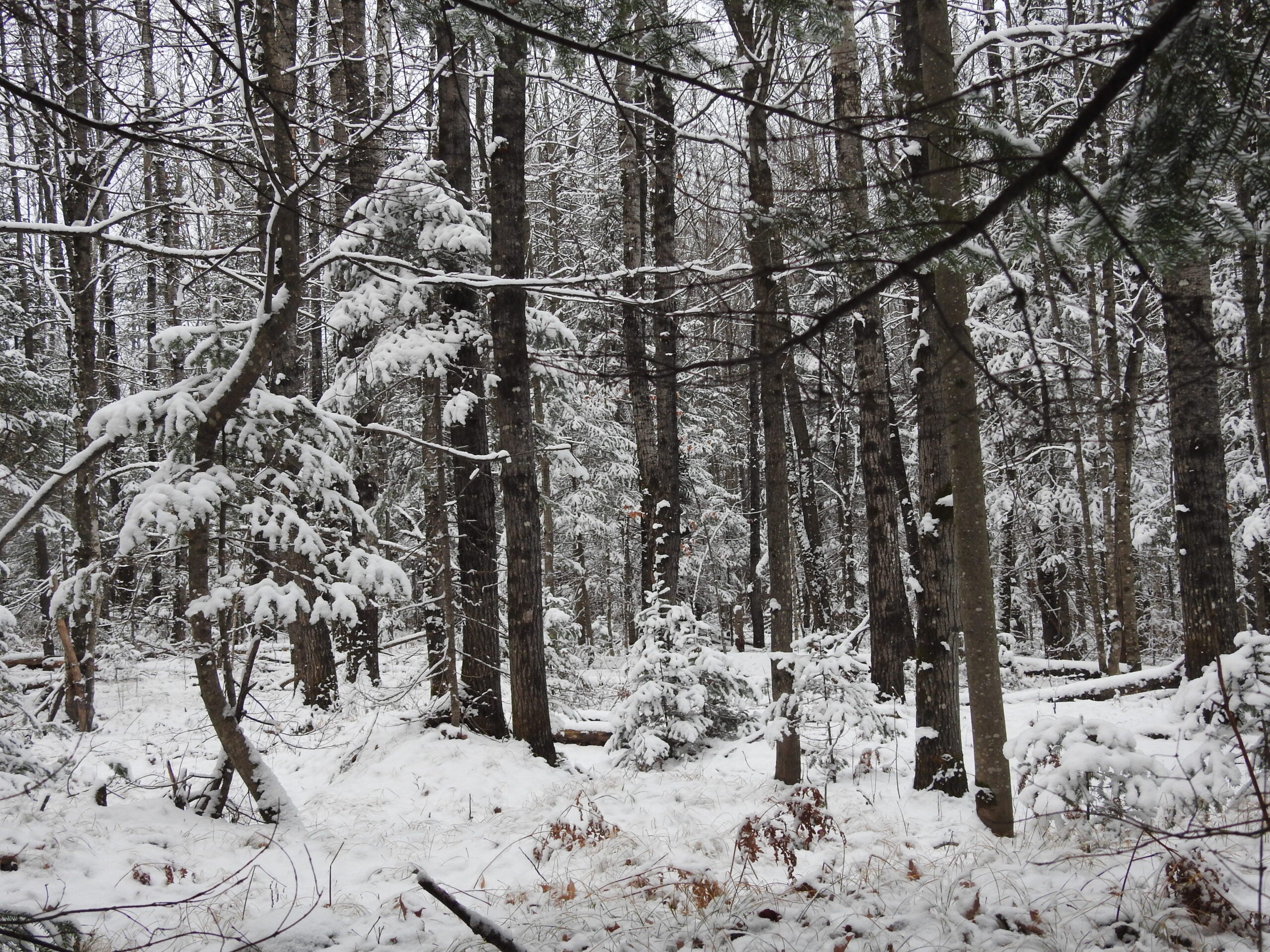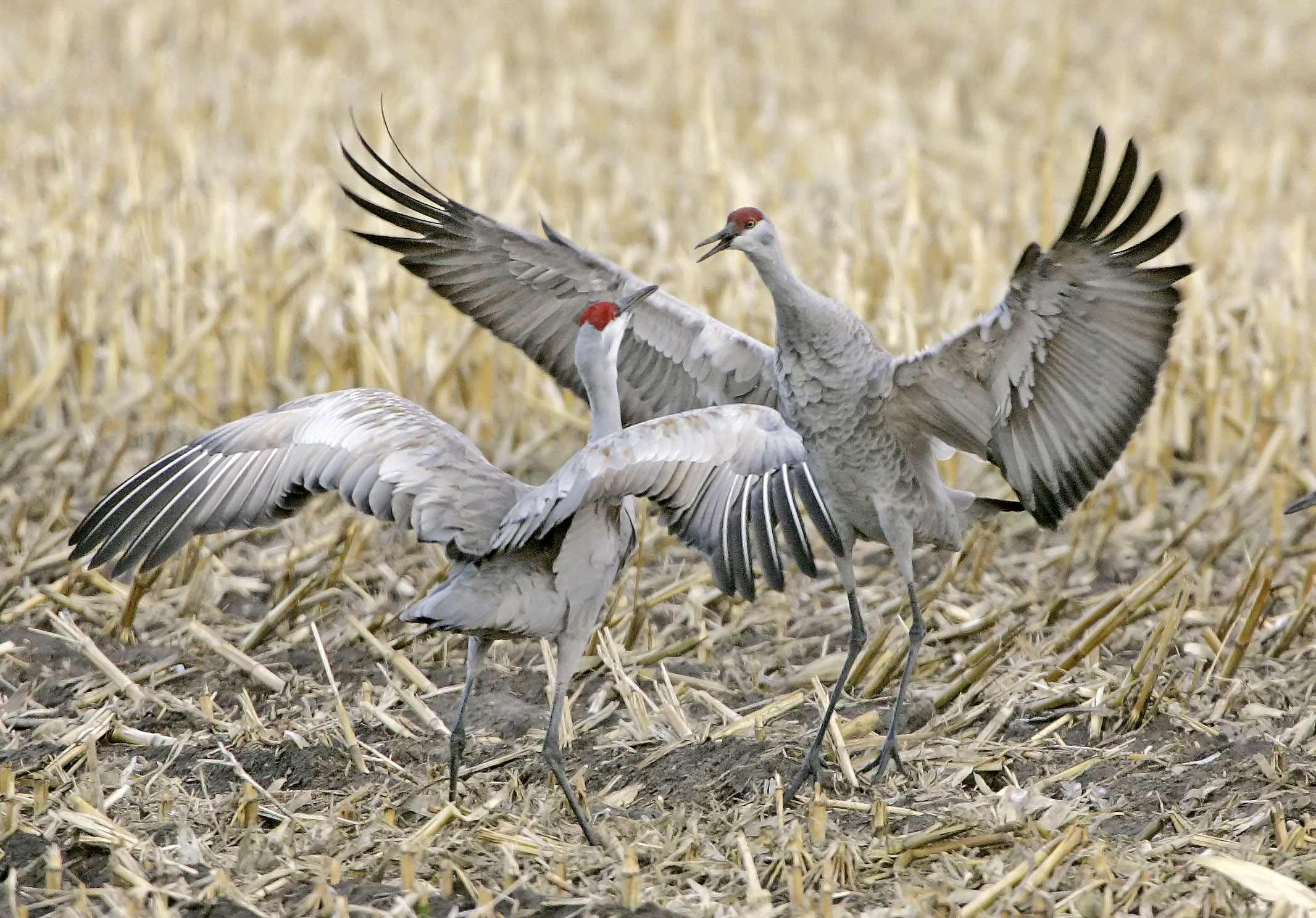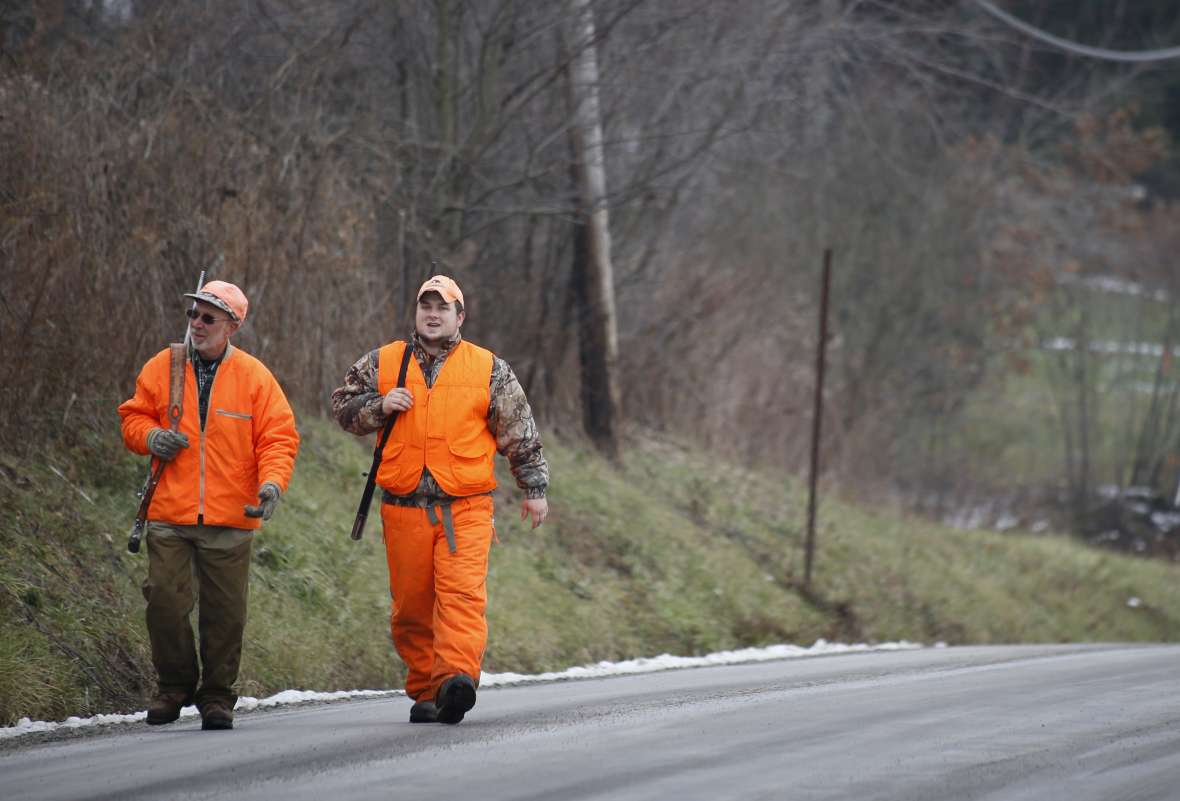Dan Luneau looks forward to deer hunting all year. He’s a teacher at West De Pere High School, and travels to deer camp in Marinette County. He’s spent the last month, he said, joking that his students need to take even more precautions than usual against spreading the coronavirus, so as not to mess up his plans to go hunting.
But this year, with the COVID-19 pandemic raging in Wisconsin, hunting is going to look different for Luneau. Instead of staying in the cabin with friends, he’ll be sleeping outside in a tent, an insulated ice fishing shelter that he’s setting up away from the rest of the party. He’ll drive up separately, sleep in his own shelter and skip the customary restaurant meal on Friday that some in the party are still planning.
“One of the guys I hunt with has a heart condition,” Luneau said. “I don’t want to have it and bring it to him.”
News with a little more humanity
WPR’s “Wisconsin Today” newsletter keeps you connected to the state you love without feeling overwhelmed. No paywall. No agenda. No corporate filter.
Luneau is one of as many as 600,000 hunters expected to take to the woods in this year’s nine-day gun-deer hunting season. And like many others, he’s making plans to make his season COVID-19-safe.
The Wisconsin Department of Natural Resources has urged hunters to take safety measures to protect against COVID-19, in addition to the gun- and tree-stand-safety reminders it issues every year. But even as this week Gov. Tony Evers extended the state’s emergency declaration and the Centers for Disease Control and Prevention recommended Americans not travel for Thanksgiving, Wisconsin has not asked hunters to stay home.
“When you look at the actual activity of hunting itself, it’s probably the greatest social distancing activity on the planet,” said Justin Gaiche, owner of Chase Outdoors in Rothschild. “The whole point is to socially distance.”
[[{“fid”:”958901″,”view_mode”:”full_width”,”fields”:{“format”:”full_width”,”alignment”:””,”field_image_caption[und][0][value]”:”%3Cp%3EIn%20this%20Nov.%2017%2C%202015%2C%26nbsp%3Bphoto%2C%20deer%20forage%20after%20a%20night%20of%20fresh%20snowfall%2C%20in%20Boulder%2C%20Colo.%20%3Cem%3EBrennan%20Linsley%2FAP%20Photo%3C%2Fem%3E%3C%2Fp%3E%0A”,”field_image_caption[und][0][format]”:”full_html”,”field_file_image_alt_text[und][0][value]”:”deer forage after a night of fresh snowfall”,”field_file_image_title_text[und][0][value]”:”deer forage after a night of fresh snowfall”},”type”:”media”,”field_deltas”:{“2”:{“format”:”full_width”,”alignment”:””,”field_image_caption[und][0][value]”:”%3Cp%3EIn%20this%20Nov.%2017%2C%202015%2C%26nbsp%3Bphoto%2C%20deer%20forage%20after%20a%20night%20of%20fresh%20snowfall%2C%20in%20Boulder%2C%20Colo.%20%3Cem%3EBrennan%20Linsley%2FAP%20Photo%3C%2Fem%3E%3C%2Fp%3E%0A”,”field_image_caption[und][0][format]”:”full_html”,”field_file_image_alt_text[und][0][value]”:”deer forage after a night of fresh snowfall”,”field_file_image_title_text[und][0][value]”:”deer forage after a night of fresh snowfall”}},”link_text”:false,”attributes”:{“alt”:”deer forage after a night of fresh snowfall”,”title”:”deer forage after a night of fresh snowfall”,”class”:”media-element file-full-width”,”data-delta”:”2″}}]]
The deer hunt happens outdoors, where the risk of transmission is lower, and there’s plenty of room for social distancing. Hunting parties may be immediate family members, or members of a “pod” who’ve chosen to spend the pandemic together.
Gaiche said he’s going hunting with his son and his grandfather, with whom they’ve spent time all year, as well as a friend.
“We’re keeping camp small,” he said.
Social Traditions Around Hunting Are Where COVID-19 Risks Are Highest
The deer hunt is a cultural tradition in the state. Thousands of Wisconsinites feed their families with the venison that a successful hunt yields, and the annual gun-deer season plays an important role in managing the state’s herd.
Gaiche said he’s talked to plenty of hunters in his shop who say they won’t make any changes to their annual traditions as a result of the pandemic. Some resent what they feel is an unfair focus on hunters as opposed to college parties, urban protests or everyday social gatherings known to have spread the virus.
But the way many people practice it in Wisconsin, the gun-deer season is a social gathering. Experts agree that the pandemic risk in coming days isn’t in tree stands; it’s at the crowded cabin at deer camp, the indoor meal at the Northwoods restaurant; or the drinks at the bar after the party has finished hunting for the day. For many people, those traditions are as much a part of their annual plans as the hunt itself, and they’re hard traditions to suspend, even in the face of a pandemic.
[[{“fid”:”876396″,”view_mode”:”full_width”,”fields”:{“format”:”full_width”,”alignment”:””,”field_image_caption[und][0][value]”:”%3Cp%3EA%20pair%20of%20hunters%20walk%20down%20a%20back%20road%20on%20Monday%2C%20Dec.%202%2C%202013%20in%20Zelienople%2C%20Pa.%26nbsp%3B%3Cem%3EKeith%20Srakocic%2FAP%20Photo%3C%2Fem%3E%3C%2Fp%3E%0A”,”field_image_caption[und][0][format]”:”full_html”,”field_file_image_alt_text[und][0][value]”:”Deer hunters”,”field_file_image_title_text[und][0][value]”:”Deer hunters”},”type”:”media”,”field_deltas”:{“3”:{“format”:”full_width”,”alignment”:””,”field_image_caption[und][0][value]”:”%3Cp%3EA%20pair%20of%20hunters%20walk%20down%20a%20back%20road%20on%20Monday%2C%20Dec.%202%2C%202013%20in%20Zelienople%2C%20Pa.%26nbsp%3B%3Cem%3EKeith%20Srakocic%2FAP%20Photo%3C%2Fem%3E%3C%2Fp%3E%0A”,”field_image_caption[und][0][format]”:”full_html”,”field_file_image_alt_text[und][0][value]”:”Deer hunters”,”field_file_image_title_text[und][0][value]”:”Deer hunters”}},”link_text”:false,”attributes”:{“alt”:”Deer hunters”,”title”:”Deer hunters”,”class”:”media-element file-full-width”,”data-delta”:”3″}}]]
Of course, not all who hunt gather in deer camps, and deer hunting in Wisconsin happens for more than just nine days per year. In general, bowhunting, which has a longer season, is a more solitary pursuit and therefore also likely a low-risk one.
Amy Ryan and her husband mostly bowhunt on their own land in rural Marathon County. For them, hunting is about being in the woods, and it’s about getting food for their family for the year. Ryan said they won’t travel to a camp. They’ve had a small circle of people out to their land, but they’ve kept their distance and stayed outdoors. They even keep their deer stands well apart.
“Everything we do is to try to make hunting safe in a normal year,” Ryan said. “And now in this year, we’re doing even more to keep ourselves isolated and to not — well, to not get infected.”
Ryan said her father and his friends, in their 70s, have decided not to participate in this year’s gun-deer season.
Family Plans To Make The Most Of A ‘Messed-Up’ Year
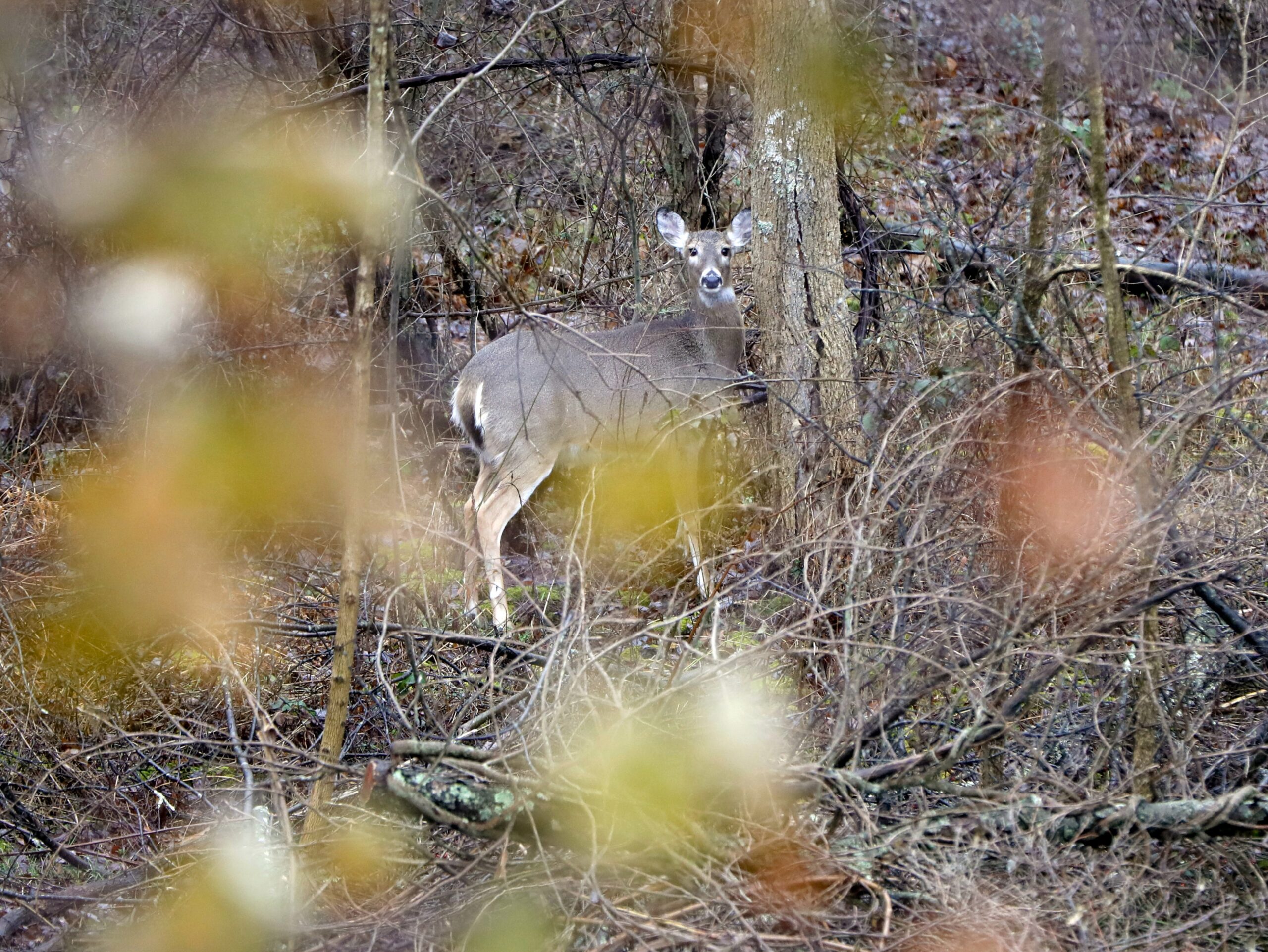
Paul Bunczak of Wausau never considered canceling their family’s outing. They eat venison all year, and give away a fair amount, as well. The family traditions are important to him, too. But there’s also a practical reason. His father still farms on some of the land where they hunt, and they rent out another parcel to a farmer. If they don’t thin the herd, the excess deer will damage their crops next year.
But this year will look a lot different than previous years, Bunczak said. They’ve rented a camper where he’ll stay on the land. Other family members will commute from their houses. One sister who usually joins won’t be making it. And they’re skipping the all-you-can-eat buffet at the rural tavern the whole family usually loves. Instead, they’ll open all the doors in the pole shed on the property, eat lunch at three separate tables for the three different family groups, and do all their socializing outside, wearing masks. They won’t mix households in the tree stands, either.
“This year is not going to be as much fun,” Bunczak said, “but a lot of things about 2020 are all messed up.”
Bunczak’s daughter works as a nurse in a COVID-19 unit in Milwaukee. She’s seen the effects of the pandemic firsthand, and the rest of the family takes it seriously as well. To Bunczak, the family traditions around the hunt are durable enough to survive 2020. It’s not so different, he said, from when it was so bitterly cold in 2013 that it was impossible to enjoy the week, or in a year when there was waist-high snow that made hunting a challenge. And recent positive news about vaccines against COVID-19 makes it feel likely that they’ll be back to many of their usual practices for the 2021 season. Even tough years, he said, make for good stories.
“Years from now, we can say, ‘Remember that year when we sat in the shed with masks?’” he said. “We’ll be fine, and in 2021 we’ll appreciate it more.”
Wisconsin Public Radio, © Copyright 2025, Board of Regents of the University of Wisconsin System and Wisconsin Educational Communications Board.

